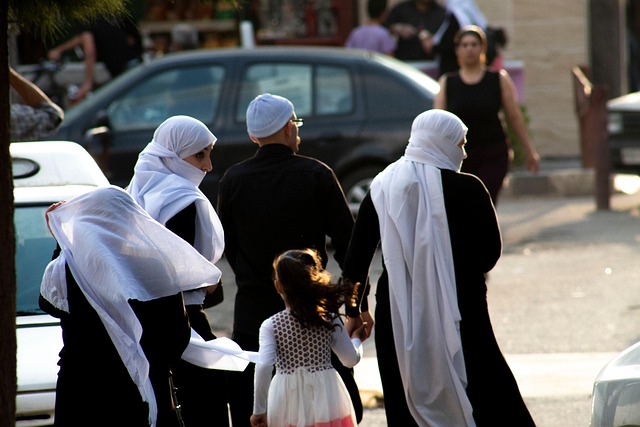By Allison McCulloch, Brandon University and Dr. Sören Keil, University of Passau
(The Conversation) – The end of a half-century of Assad family rule in Syria marked a turning point in the country’s deadly 13-year civil war after rebel forces led by Hay’at Tahrir al-Sham (HTS) conquered Damascus.
A peace resolution for Syria was long deadlocked, despite efforts by the United Nations to find a Syrian-led, Syrian-owned political transition. Talks on constitutional reforms, power-sharing between the government and opposition and institutional safeguards to protect the country’s multicultural and diverse heritage came up empty-handed.
Now that former president Bashar al-Assad and his family have fled the country and amid the retreat of longstanding Russian, Iranian and Hezbollah support, a new chance for inclusive democratic governance has emerged.
Aligning approaches to peace
Our research investigates the conditions that bring about inclusive governance arrangements, such as power-sharing, federalism and decentralization.
Based on interviews with international mediators, academics, political activists and local elites in Syria, Lebanon and Iraq, our research group believes there must be convergence in and across three negotiation arenas:
-
Domestic officials and entities need to see power-sharing as the most feasible way to solve their collective disputes.
-
There must be agreement on power-sharing among international organizations.
-
International entities must reinforce the commitment to power-sharing with their domestic counterparts and proxies.
Until late 2024, none of these conditions were met in Syria. Neither the Assad regime nor the opposition were prepared to share power. “Assad, or we burn the country!” was the rallying cry of the regime’s supporters. The opposition’s goal, meantime, was always to expel Assad from power, not govern alongside him.
Nor could international organizations align their approaches. Since 2012, the United Nations’ Geneva process tried for a negotiated political transition with democracy, inclusion and power-sharing. The Russia-led Astana process, with support from Iran and Turkey, emphasized military deescalation and ceasefire zones that gave the advantage to Assad. By 2019, three of the four zones were controlled by the regime.
No progress
With contrasting mediation approaches and competing objectives, progress on provisions that might have lead to peace in Syria, such as transferring some presidential powers to parliament or decentralization, did not materialize. An Assad regime military victory seemed a foregone conclusion.
The quick HTS takeover changed all of this. Domestically — and despite HTS’s background as an Islamist group with links to al-Qaida — its leader, Ahmed al-Sharaa, has made gestures about the importance of dialogue and the drafting of a new constitution.
Initial meetings with Christian community leaders and with the leadership of the Kurdish-dominated Syrian Democratic Forces signals some willingness to consider inclusive governance arrangements.
A new geopolitical constellation could be emerging. Russia and Iran have found themselves, almost overnight, without major leverage with the new Syrian leadership. The same applies to Hezbollah, itself bruised by a punishing conflict with Israel.
Others are attempting to step into the breach. France’s foreign minister said during his visit to Syria that “a political transition in Syria that includes all communities in their diversity, that upholds the most basic rights and fundamental freedoms” is now needed. The point was echoed by Geir Pedersen, the UN Special Envoy to Syria.
The road ahead
European powers are placing conditions on their support for HTS based on further progress towards inclusion, respect for human rights and overall stabilization in the country. Turkey, too, has an interest in Syria’s stability, which might enable the return of the millions of Syrians who found refuge there.
Given Syria’s religious, ethnic and cultural diversity, inclusive governance mechanisms based on power-sharing principles will be vital for a new government.
Proposals for the allocation of ministerial portfolios, on an inclusive and automatic basis, are emerging. So too are considerations of how to decentralize power without breaking up the country, especially in the north where autonomy already exists.
This will be no easy task.

Image by fahed kiwan from Pixabay
Distrust
Not everyone trusts the government’s new inclusive tone. Its rhetorical commitment to women’s rights and transitional justice require concrete action. There have also been delays in convening a promised national dialogue conference.
Assad’s tactic was to divide and rule. There was preferential treatment for some, such as the Alawite and Druze communities, and oppression for others, including the Kurds.
This legacy will complicate language on minority rights in a new constitution. Syrians have also seen how sectarian power-sharing has led to gridlock in neighbouring Lebanon, which they will want to avoid.
No common position among international and regional entities for inclusive governance has yet been found. Turkey does not want an autonomous Kurdish region on its border, which it sees as a potential national security threat. This might stand in the way of a sustainable solution to the northern territories, where some autonomy already exists.
The fall of the Assad regime opens the door for a new, inclusive, democratic, Syrian-led and Syrian-owned path, but it remains a path full of pitfalls and challenges.
Allison McCulloch, Professor of Political Science, Brandon University and Dr. Sören Keil, Senior Teaching and Research Fellow, University of Passau
This article is republished from The Conversation under a Creative Commons license. Read the original article.


 © 2025 All Rights Reserved
© 2025 All Rights Reserved